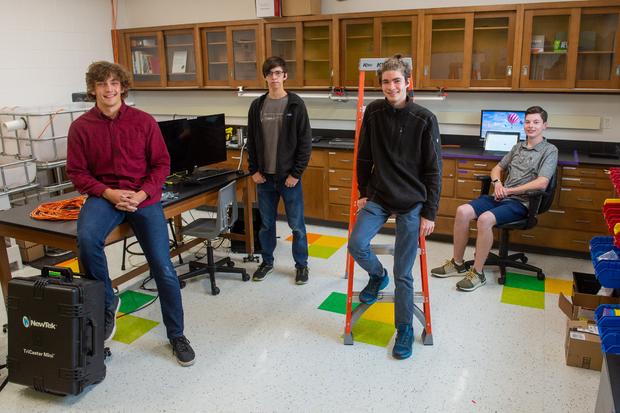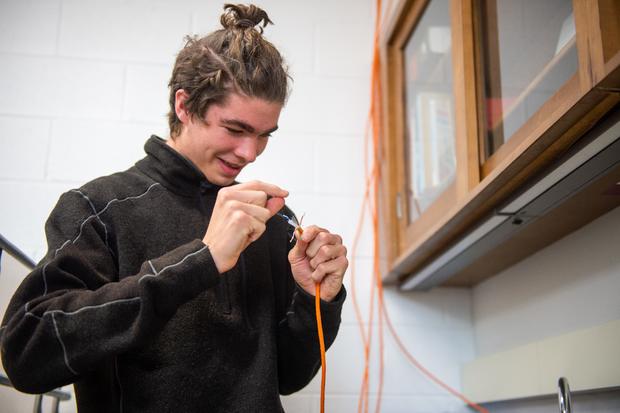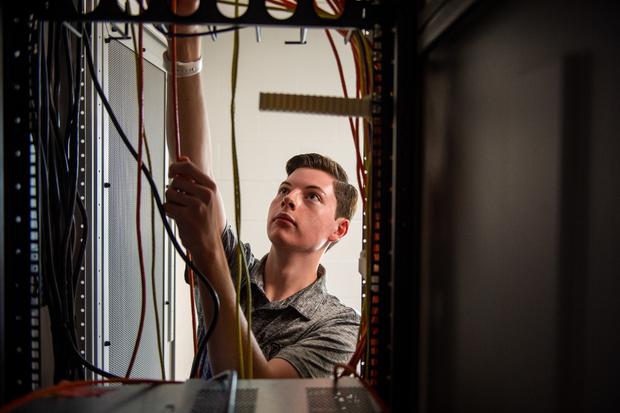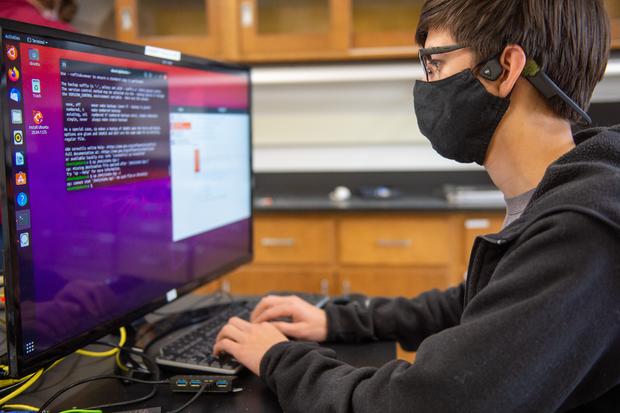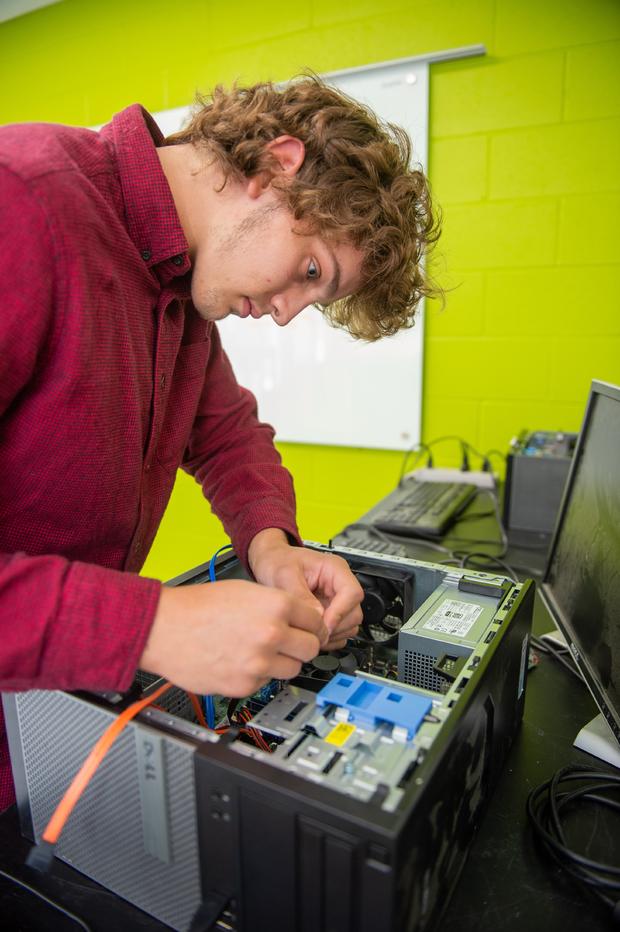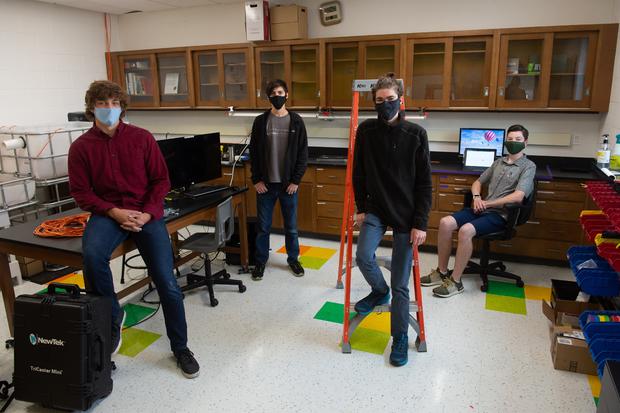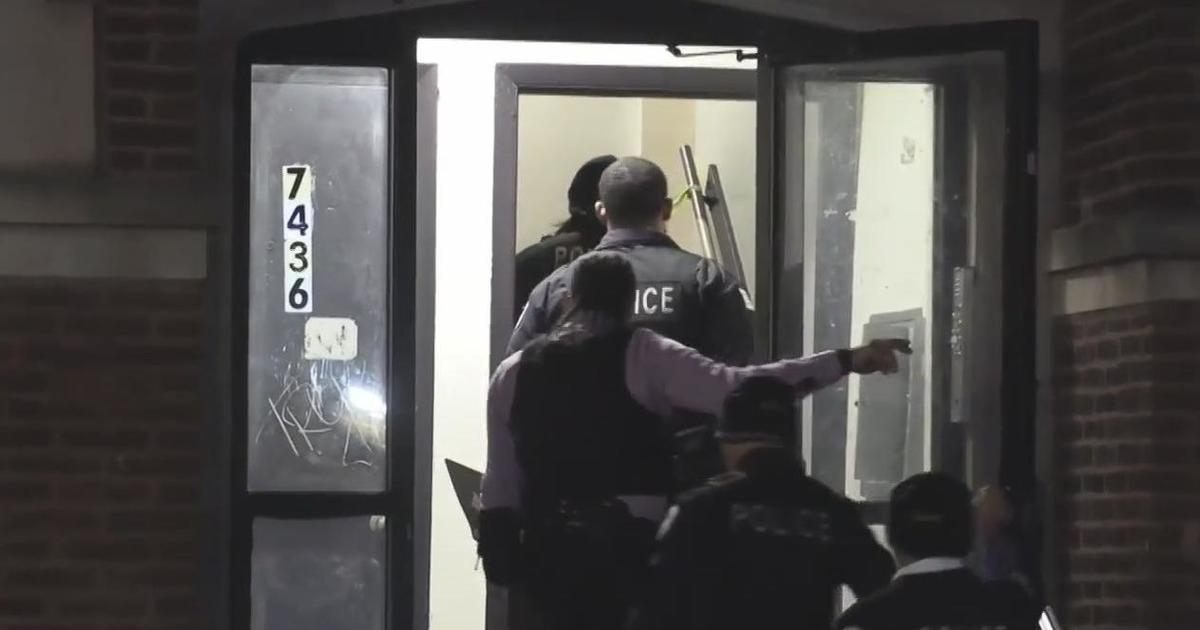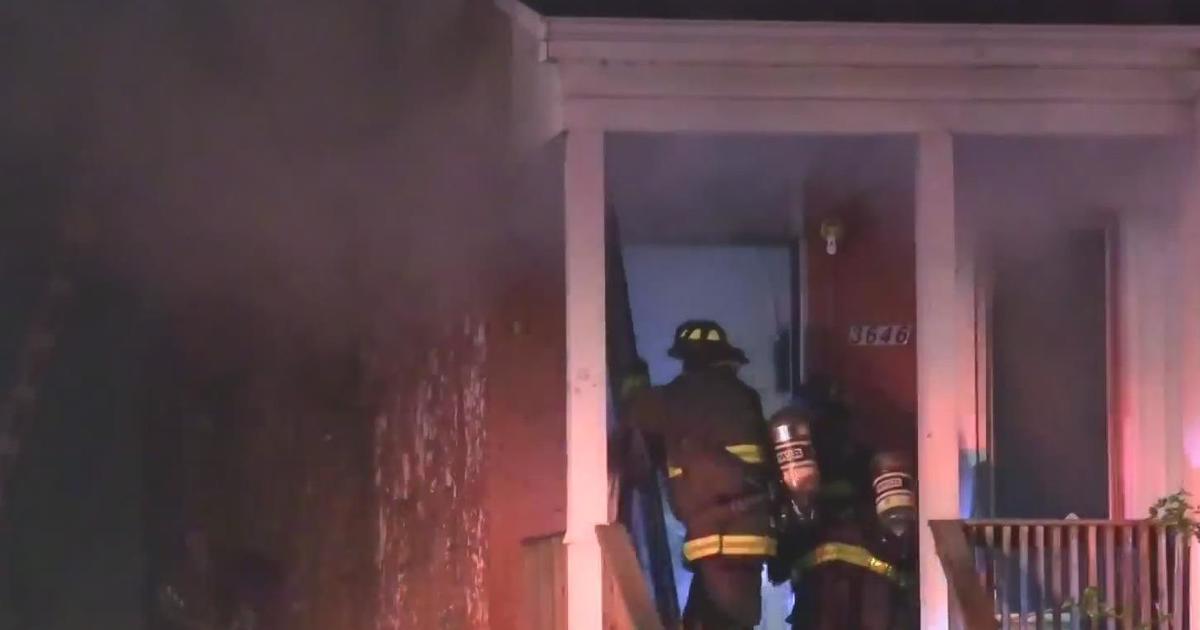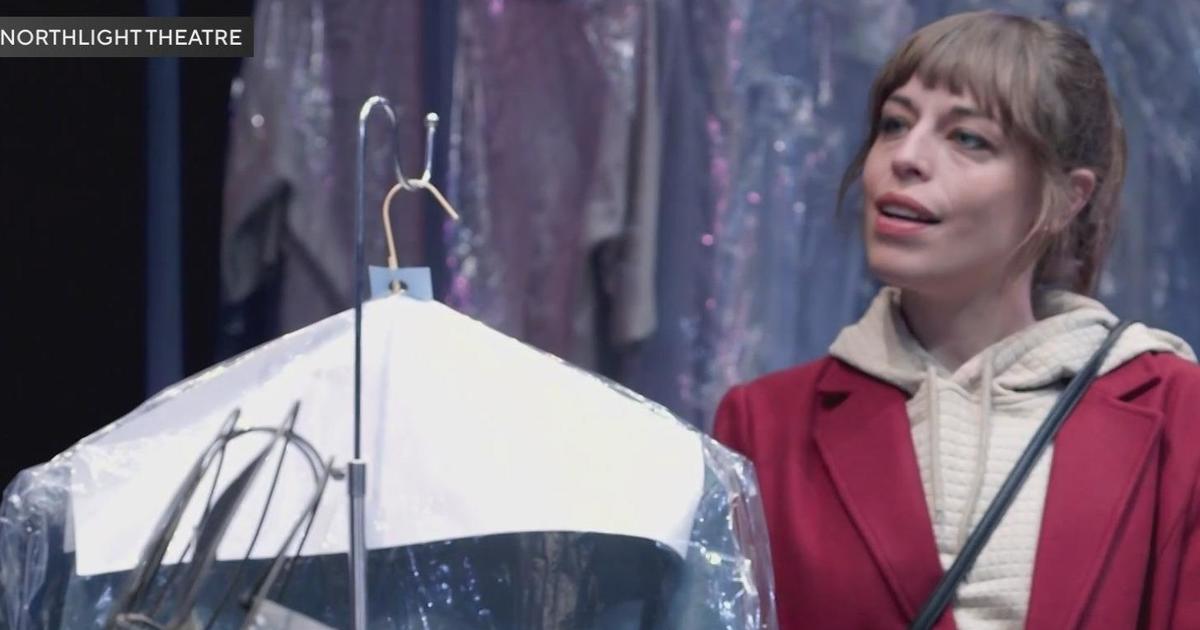Wheaton Academy Student Server Project Turns Gaming Into COVID Research
By CBS 2 Digital Producer Yolanda Perdomo
CHICAGO (CBS) -- A virtual game to connect classmates during the pandemic lockdown evolved into a complex project in the fight against COVID.
Students at Wheaton Academy created a Minecraft server to play each other while away from each other as they were remote learning.
Their love for Minecraft evolved into something more detailed than the game's building block construction.
Senior Robert Dieter, 18, said for him, the game was a way to learn more about the technology used to power it and similar programs.
"I'm honestly not much of a 'gamer' so I was more interested in getting to work with the technology behind the scenes," Dieter said. "The goal was to make it our own, a server dedicated just for the Wheaton Academy students and community. As the Server Project began to expand, I got more involved in the front end, helping to run other (non-Minecraft) programs."
For 18-year-old Peter Sorenson, the Student Server Project helped him connect with his school community in a different way while everyone was away.
"There are tons of free and public Minecraft servers out there that anyone can play on, but we wanted to run a Minecraft server specifically for the Wheaton Academy community," Sorenson said., who added creating a server would give them more flexibility.
"The advantage to doing it this way was that we could modify the experience through plugins and mods to add extra features to the game."
He credits Dieter, his classmate, with getting donations to build the server.
"A typical request starts by identifying what equipment we are looking for and then finding companies (especially local ones) that produce it. Then, we type up a letter explaining what the Student Server Project is and how we would use said equipment," said Sorenson.
The Server Project, as it is known, was run out of Wheaton Academy for electric, cooling and internet services needed to make the project function.
The Wheaton Academy students were able to put their resources to projects and companies who used their technological expertise to expand work on COVID-19 research.
"Folding@Home is a project that helps researchers and scientists perform research by crowd sourcing the computational power needed to run protein folding simulations," Sorenson said, adding that it was also a great space to expand their Minecraft experience.
"Beside F@H we do help alpha test a Minecraft server management panel for an open source software project called Crafty Controller," Sorenson said.
He added that since their project was "not using the full capabilities of the cluster at the time and F@H was helping with COVID-19 research we decided to allocate as many resources as we could to it."
And watching a company tackling the COVID-19 crisis through technology was a fascinating experience.
"It has been really exciting to see the amount of research F@H has been able to facilitate using the crowd sourced computational power. Reading through a progress update like this one has a lot more meaning when you realize that the servers you are running helped make it happen," Sorenson said.
Dieter added that Folding@Home, a crowd sourcing computing system, will help countless others in the fight against COVID-19.
"At the start of the COVD-19 pandemic, F@H paired up researchers who needed processing power with groups who were willing to donate their processing power. Although we were never able to see exactly what our servers were computing, we know that they had a significant positive impact because of the number of successfully completed jobs," Dieter said.
"Did I mention we still host the Minecraft server?"
One of the companies that donated equipment for the Wheaton Academy students was power management company Eaton, with offices in Glendale Heights.
The students wrote a letter to the company explaining their project's needs and Eaton was happy to help.
"The students wanted something that would give them better organization and peace of mind that all the equipment would have safe, reliable supply of electricity," said Eaton's Kyle Jarrell.
He added that the students were given "two Eaton 9PX2000RT model UPSs, 2 NETWORK-M2 gigabit network cards for cybersecure management/connectivity, and two EPBZ85 basic rack-mount PDUs."
What did he think of their work?
"I was extremely impressed with the students' knowledge and passion for their projects. During the process of understanding the problem and considering different solution options, I enjoyed hearing about the work they were doing and their future plans," Jarrell said.
Luke Regan has been teaching at Wheaton Academy for nine years. He said the project has helped the students in different ways beyond improving gaming techniques.
"I think that the most important thing that they have learned is that they have the capacity to make a difference in the world now and the ability to inspire others to join with them," Regan said. "They really are inspiring."
To get the project running, the students received donations, and the gifts kept coming.
"The students have probably received between $35,000 and $40,000 of donations throughout the life of the project," Regan said. "It's a testament to the students' passion and initiative, as well as the generosity of professionals who want to help these students succeed."
The project leaders who worked on the Server Project are seniors and will soon head off to college.
Sorenson's plans after high school include studying computer engineering at Rose-Hulman Institute of Technology. Dieter will be heading off to Northwestern where he too plans on studying engineering.
Sorenson said what started out as a way to connect people to a game turned into work that will impact his future as an engineer.
"Even if the project had been a flop, we would have still learned a huge amount from the experience. Reading all the books in the world cannot match the same type of learning that you get from experimenting and working through the problems that naturally pop up when pursuing a goal," Sorenson said. "The Server Project has allowed me to gain real world experience in the IT industry while still in high school, and the lessons I learned while working through various problems will stick with me long into the future."
Dieter didn't want to be "too philosophical" about the experience, but said it showed him how many people want to make the world a better place by helping each other through technology.
"The outpouring of equipment donations had led me to understand that if you're doing good, others will support you. We saw an opportunity to learn more about technology and give back to the scientific community along the way," Dieter said.
"Some of the largest players in the technology industry noticed us and cared enough to support us. Focusing on the "why" instead of the "how" helped change my perspective to be more open-ended and ultimately, more generous myself."
